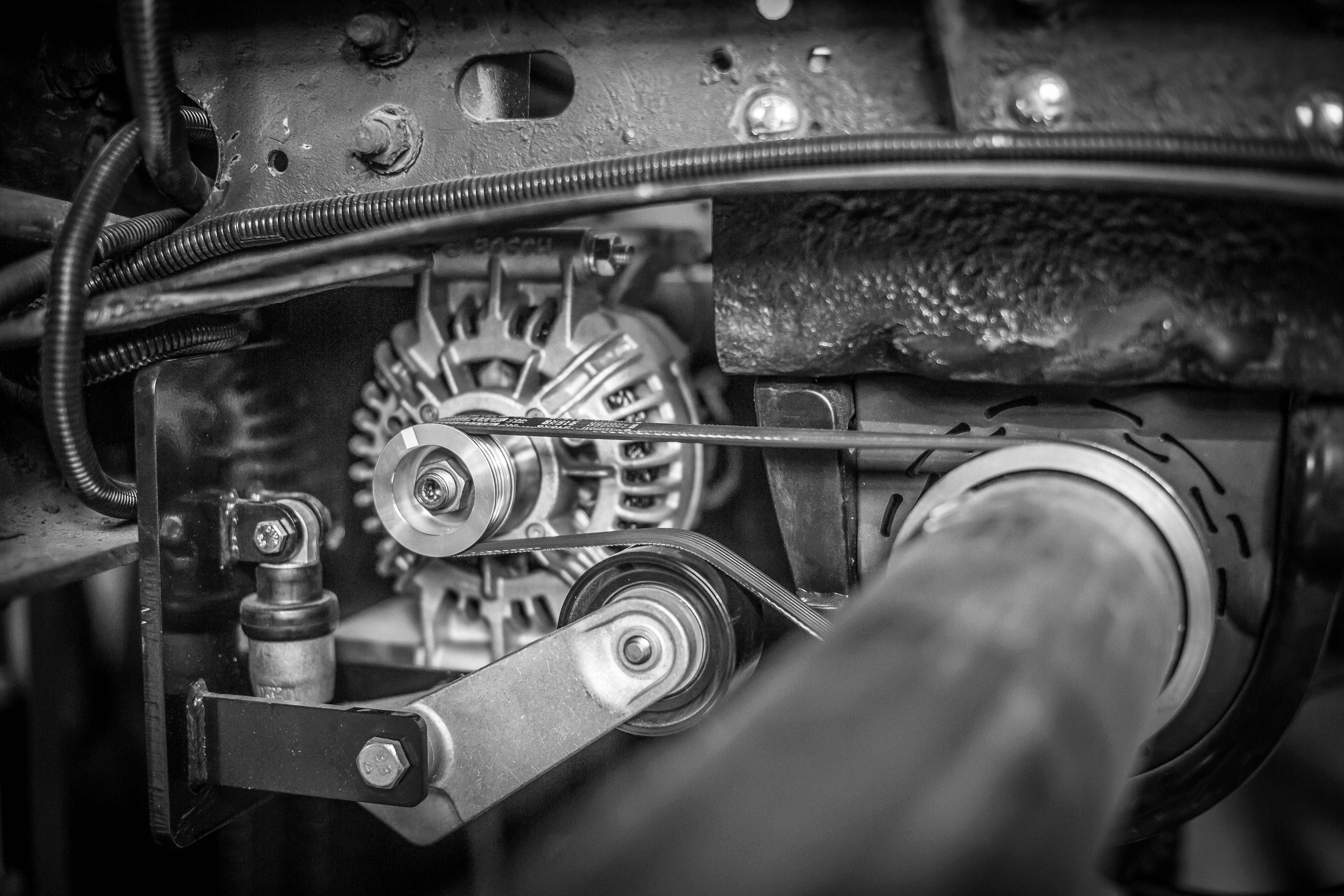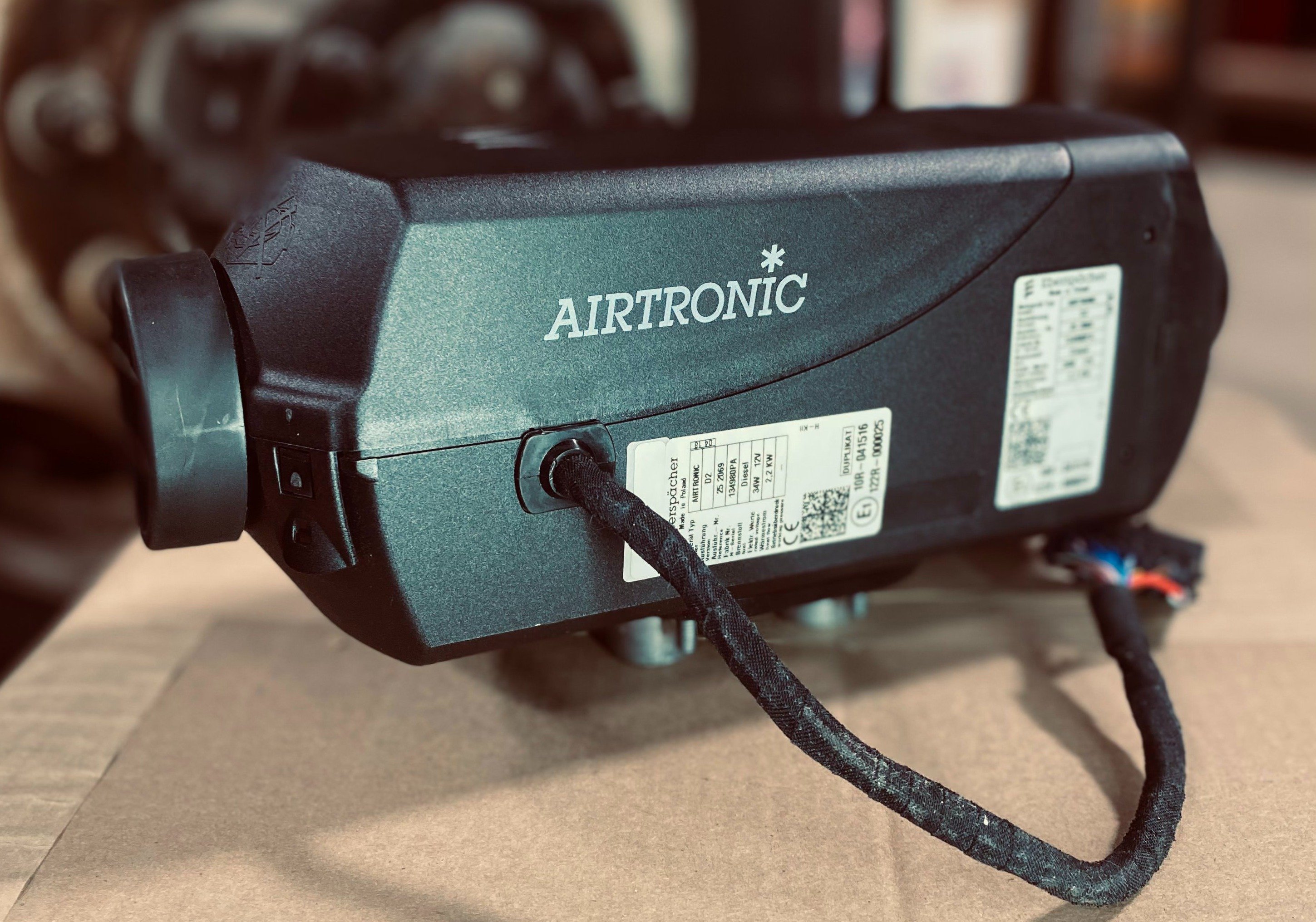Spec’ing out an Electric APU? 5 Reasons to Choose Hybrid Charging Over Upgrading to a Larger Engine Alternator
by Elayne Cronin, Ph.D. | Mar 12, 2021 | RelGen, Electric APU, Charging Solutions, Voltage Loss | 0 Comments
When most fleets invest in electric AC units, they will often upgrade the 130-160-amp stock engine alternator to a 280-320-amp alternator to support the additional load introduced by the AC unit. For the same price of the bigger alternator and recabling the entire truck however, you can install RelGen® Hybrid Charging instead and get the MAX performance from your AC and add even more power hungry appliances to the hotel load– a refrigerator, microwave, C-PAP machine and more– to keep your drivers comfortable. With RelGen you have all the CLEAN power to do so much more while reducing fuel use, maintenance costs and emissions!
RelGen is more efficient at charging auxiliary batteries than an engine mounted alternator because it is located behind the transmission. It collects wasted energy from the driveshaft which spins faster than the engine alternator to generate clean power. At low speeds, “the transmission effect” allows RelGen to make power using a lower percentage of the engine’s available torque. At higher vehicle speeds the driveshaft spins faster than the engine crank shaft giving RelGen up to a 30% higher RPM which creates more power in less time. This allows RelGen to generate clean electricity at a faster rate while the truck is in motion.
Bergstrom Inc, the world’s largest cab climate system manufacturer and maker of the battery-powered NITE no-idle system, also agrees that RelGen is a far more efficient option than simply upgrading to a larger alternator. Their Managing Director and Principal Engineer Sean Connell had this to say about Blackburn Energy’s hybrid charging system: “In a very small package, Blackburn has eliminated the need to upgrade the alternators on engines. Their product keeps batteries charged better than anything we have seen before.”
Here are five reasons why RelGen is a much more efficient option than upgrading to a larger engine alternator
1. A Larger Alternator Decreases Your MPG
An electrified AC requires more electricity than your stock engine alternator can produce so most fleet managers must upgrade to a larger amperage alternator. However, the larger amperage alternator will decrease your MPG by 0.1 - 0.2%. This increase leads to thousands of dollars in increased fuel costs. With RelGen on the other hand, you can skip the cost of upgrading the engine alternator and instead focus on generating the most efficient charge for auxiliary batteries without minimal impact to your MPG.
2. You’ll Need to Re-cable the Entire Truck
A larger amperage alternator requires larger power cables for the entire truck – from the alternator to the auxiliary batteries. Failure to increase cable size results in a cruel irony of Ohm’s Law which describes the relationship between resistance, voltage and current. When you increase the amount of current but do not increase cable size, you increase the loss of voltage over that cable. So fleet managers must also upgrade power and ground cables to a gauge rated for a current carrying capacity that is at least 125% of the maximum current expected to run through the cable. With RelGen you can skip this step all together since you are not depending on the larger engine alternator to power the auxiliary batteries.
3. Voltage Loss will Occur Over Long Cables
Even if you upgrade the alternator and cabling size, you will still experience voltage loss issues. This is because the electrical power from an engine mounted alternator must travel from the alternator to the starter batteries and multiple battery terminals and connectors, then through another set of even longer cables and connectors, circuit breakers, relays and fuses before finally arriving at the auxiliary batteries.
This 30+/- feet of cable plus the many points of resistance reduce the flow of electricity. The more points of resistance results in lower voltage reaching the batteries, which increases the time required to charge the batteries and adds more stress on your engine mounted alternator.
RelGen however is installed behind the transmission where it collects energy from the driveshaft which spins faster than the engine alternator. As a result, RelGen has no voltage loss problem since the power creation and storage is within 2 or 3 feet of the auxiliary batteries.
4. You May Burn out Your Engine Alternator Prematurely
While estimates vary slightly, the multiple points of resistance over long cabling means the oversized engine alternator will run hot all day as it works hard to charge the auxiliary batteries to 100% Anecdotally, we hear from many fleets that this increased duty cycle is causing premature alternator failures as well, often ending in mechanical breakdown and roadside service or a tow. Since you are not depending on the engine alternator to charge your auxiliary batteries over the driver’s duty cycle, you can have peace of mind that your engine alternator will not burn out prematurely.
5. It still takes about 10 hours of Drive Time to Charge Auxiliary Batteries Fully
The drive time required for an engine mounted alternator to charge the auxiliary batteries from 0% (~11.6 volts) to 100% (~12.8 volts) is close to 10 hours. Undercharging frequently occurs when the driver’s duty cycle is only 6 - 8 hours. In those shorter drive cycles, the batteries are usually only charged to about 70% which significantly reduces the AC’s run time, resulting in a common complaint about electrified AC units.
Furthermore, the chemistry of lead acid batteries resists more charge when they reach 80% (so called saturation). Even a bigger, more powerful alternator still has difficulty pushing through saturation and needs more runtime to complete the auxiliary battery charge to 100%. Consequently, even with an 8-10-hour drive cycle, the batteries are often still not charged to 100%. Consistently undercharging your auxiliary batteries can lead to premature battery failure. It also, however, causes your electric APU and other appliances to underperform.
RelGen generates a dedicated 200 amps to your auxiliary batteries and can charge 4 AGM batteries from 0 to 100% full in about 3.5 hours of driving, which offers the fastest charge on the market. Hybrid charging will maximize your investments in your batteries and appliances since it will always keep your batteries fully charged.
Conclusion: Choose Hybrid Charging Over a Larger Engine Alternator
It is critical to identify the right charging source for your vehicle to regularly achieve 100% state of charge to protect the health of your batteries and to maximize your investment in an electric APU. The difference in AC runtime between batteries at 80% and 100% state of charge is nearly 2 hours. With RelGen, you can do so much more for your drivers than just adding an electric APU – You can add a refrigerator, microwave, C-PAP machine – whatever your driver’s heart desires while never having to idle for power again!
To sum it up here are 5 key takeaways to remember when choosing between upgrading the engine alternator or installing Hybrid charging.
- It costs about the same to either upgrade to a larger alternator and recable the truck as it does to install RelGen. A larger amperage alternator will decrease your MPG between 0.1-0.2 which leads to thousands of dollars in increased fuel costs per year. RelGen will decrease your fuel and maintenance costs.
- With RelGen, you can skip upgrading to a larger cable size because you are no longer depending on the engine alternator to charge your auxiliary batteries.
- RelGen has no voltage loss problem since the power creation and storage is within 2 or 3 feet of the auxiliary batteries.
- Since you are not depending on the engine alternator to charge your auxiliary batteries you do not need to worry about engine alternators running hot all day and prematurely failing.
- RelGen generates a dedicated 200 amps to your auxiliary batteries and can charge 4 AGM batteries from 0 to 100% full in about 3.5 hours of driving.
Is this something your fleet is considering? Book a meeting using this link to learn more.
Most Popular
Categories
- RelGen (18)
- Anti-Idle (14)
- Charging Solutions (13)
- Battery Recharge (11)
- Electric APU (10)
- Liftgates (10)
- Preventative Maintenance (7)
- Voltage Loss (6)
- DC/DC converters (4)
- Driver Retention (4)
- Uptime (4)
- fuel savings (3)
- 48V (2)
- Blackburn Team (2)
- Solar Panels (2)
- Consulting (1)
- DOT compliance (1)
- Espar Airtronic D2 Diesel Fired Air Heater (1)
- Financing (1)
- Hardware as a Service (1)
- Power Wall (1)
- alternators (1)
- data (1)
Archives
- October 2020 (4)
- November 2020 (4)
- May 2020 (3)
- September 2020 (3)
- March 2021 (3)
- April 2021 (3)
- July 2020 (2)
- August 2020 (2)
- January 2021 (2)
- June 2020 (1)
- July 2021 (1)
- August 2021 (1)
- October 2021 (1)
- January 2022 (1)
- February 2022 (1)
- March 2022 (1)
- June 2022 (1)
- October 2022 (1)
- January 2024 (1)
- March 2024 (1)
- May 2024 (1)
- September 2024 (1)











